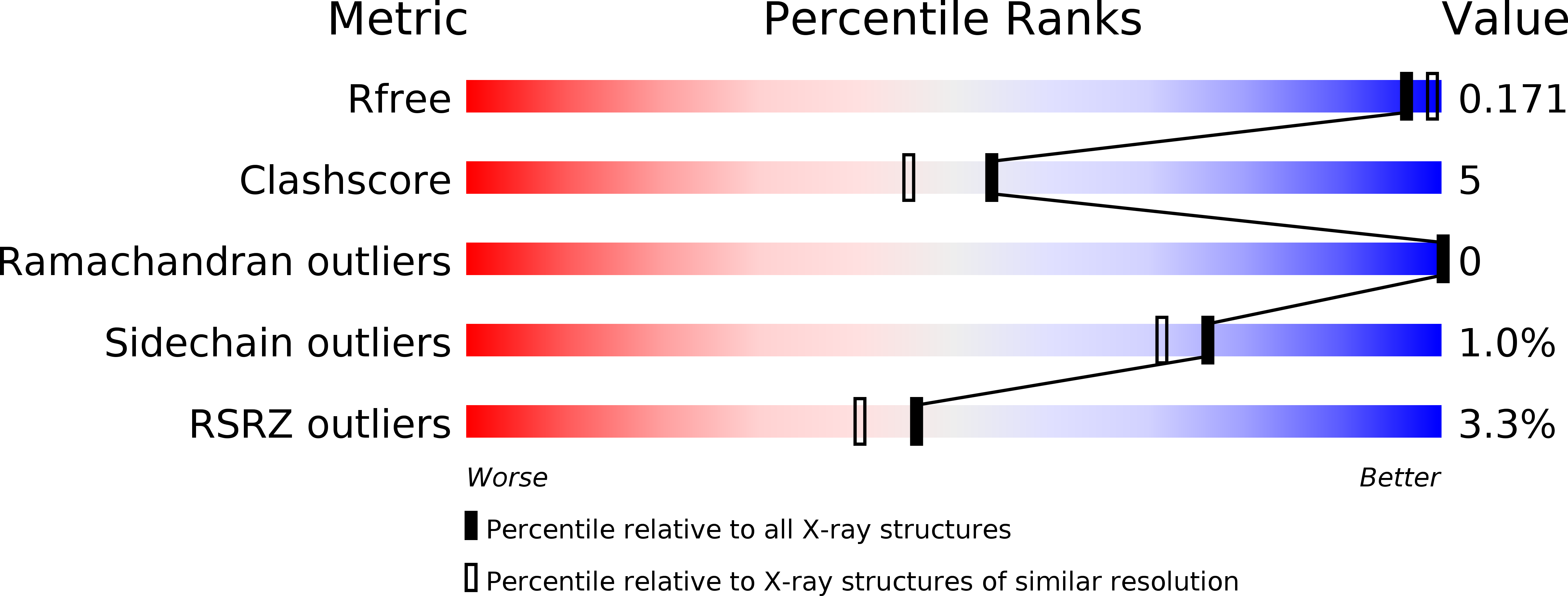
Deposition Date
2013-09-19
Release Date
2014-04-16
Last Version Date
2023-12-20
Entry Detail
PDB ID:
4C6Y
Keywords:
Title:
Ancestral PNCA (last common ancestors of Gram-positive and Gram- negative bacteria) beta-lactamase class A
Biological Source:
Source Organism(s):
SYNTHETIC CONSTRUCT (Taxon ID: 32630)
Expression System(s):
Method Details:
Experimental Method:
Resolution:
1.80 Å
R-Value Free:
0.17
R-Value Work:
0.14
R-Value Observed:
0.14
Space Group:
P 21 21 21


